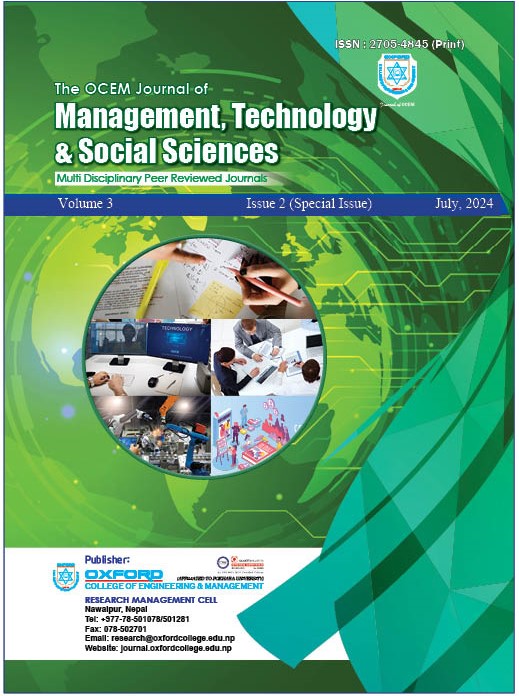Driving Sustainable Development through Green Technology Innovations
DOI:
https://doi.org/10.3126/ocemjmtss.v3i2.68073Keywords:
environmental challenges, green technology,, innovation, sustainable developmentAbstract
The urgency to address environmental challenges in the twenty-first century, particularly the looming threat of climate change, has become imperative for safeguarding our existence. Amidst this crisis, Global youth have emerged as influential agents of change, spearheading innovative solutions in green technology. This paper delves into the pivotal role of global youth in driving transformative efforts towards a sustainable future. It examines how youth serve as catalysts for change by promoting green technology for sustainable development globally, especially against the backdrop of escalating environmental concerns. Through a comprehensive review of the literature and case studies, this study explores different facets of youth engagement in green technology, including innovation, entrepreneurship, collaborative networks, policy advocacy, behavioural shifts, and long-term impacts. It elucidates the mechanisms through which youth-driven initiatives contribute to global environmental Sustainability and societal transformation, drawing from empirical verification and theoretical frameworks. Furthermore, this paper discusses the implications for research, policy formulation, and practical implementation in harnessing the potential of youth as drivers of innovation and Sustainability. It underscores the significance of recognizing and fostering youth as critical stakeholders in shaping a global, more durable, and environmentally conscious future.
Downloads
Downloads
Published
How to Cite
Issue
Section
License
This license enables reusers to distribute, remix, adapt, and build upon the material in any medium or format for noncommercial purposes only, and only so long as attribution is given to the creator.




